Philosophy
At Sherith Israel Preschool we believe that children need ample opportunities to
- Run, jump, climb, crawl and hang.
- Move their bodies in wide outdoor spaces.
- Feel free to experiment.
- Use their voice.
- Be naturally curious.
- Develop a rich Jewish identity
 |
 |
 |
 |
Under the guidance of well trained teachers-we trust children to develop the ability to access risks in play.
Children are allowed to experiment, get dirty and fail.
We hope to instill a growth mindset and encourage a resilient attitude when faced with adversity. It’s our belief that children learn best through direct hands-on play based experiences that build a strong foundation for future more formal, structured learning.
Children take an active role in their own learning and teachers view themselves as co-constructors of knowledge. Curriculum emerges from children’s experiences and questions.
Teacher researchers document the child, the family and their own learning, making learning visible to parents, colleagues and students.
Discipline is relationship based and children are involved in the problem solving process. We aim to equip children with life skills promoting self-regulation, self-advocacy, empathy, compassion, and community engagement.
It is our goal to encourage children to be internally motivated. We do not use external motivators such as a reward system or over praising. Our educators base their work with children on research and best practices set forth by NAEYC.
Learn more about our philosophy with these links
- Encouraging Risk Taking (from Community Playthings)
- Growth Mindset vs. Fixed Mindset (based on the research of Carol Dweck, American Psychologist-Stanford University)
- Resilience (from Harvard's Center for Developing Child)
- Co-construction of knowledge (from Wikipedia)
- Emergent curriculum (from Wikipedia)
- Making learning visible (video from Queensland Curriculum and Assessment Authority)
- Relationships Come First – Then Look at Discipline (from Oklahoma State University)
- Internal motivation — Motivating Learning in Young Children (from NASPA Center)
- Reward systems — Rewarding Good Behavior: The Dangers of Incentive-Based Parenting (from Shared Vision Psychological Services)
- Over praising — 10x-good-job-alternatives (from the National Association for the Education of Young Children)
- Best practices — A framework for educators to promote each child’s optimal development and learning through a strengths-based, play-based approach to joyful, engaged learning. (from the National Association for the Education of Young Children)







